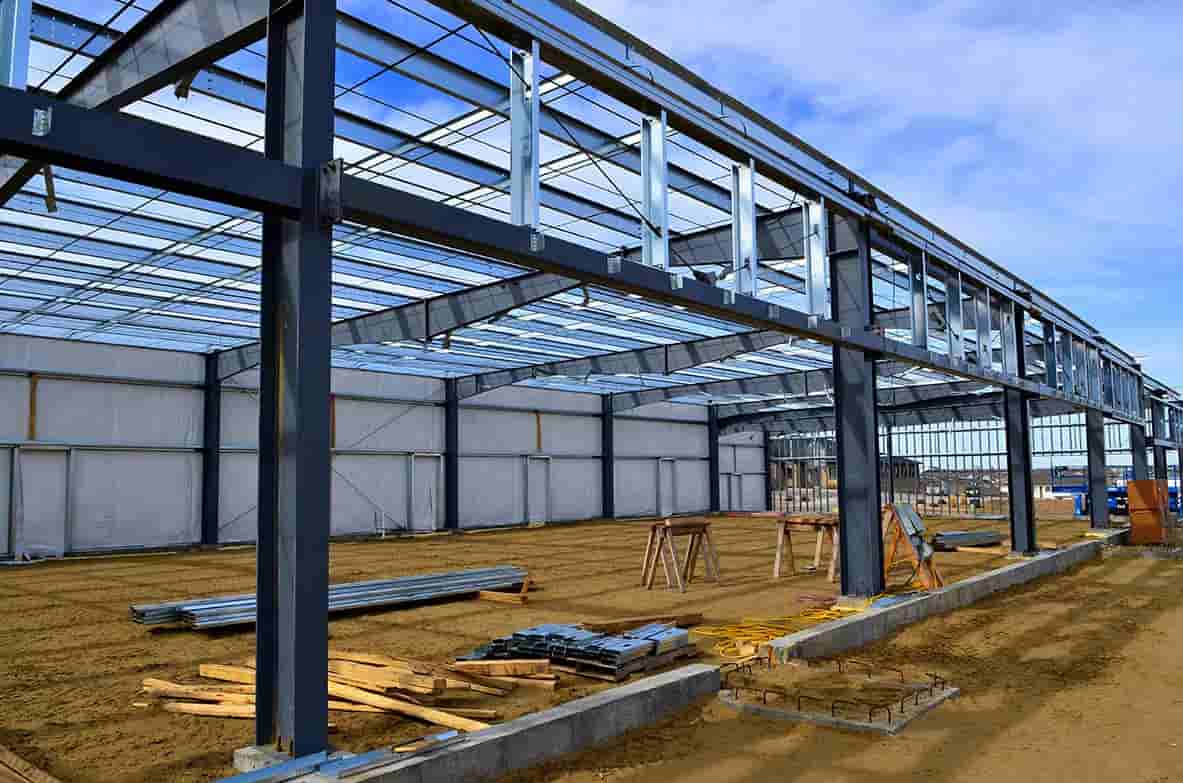The phrase “sheet metal fabrication” carries immense significance in industrial construction. It is a cornerstone of the metal work progress, an integral process underpinning the development of modern infrastructure and manufacturing facilities. Sheet metal fabrication is the art and science of transforming raw metal sheets into diverse structures and components, contributing to the robustness and functionality of industrial constructions. This article will explore sheet metal fabrication’s pivotal role in industrial construction and its lasting impact on the world.
The Foundation of Structural Integrity:
Industrial facilities, like factories, warehouses, and manufacturing plants, rely on structural integrity to withstand the rigours of their operations. Sheet metal fabrication is at the foundation of this integrity. It involves the precision shaping and joining of metal sheets to create beams, columns, and supports that form the skeleton of these structures. The result is a framework that provides stability and durability, ensuring workers’ safety and the facility’s longevity.
Customisation and Versatility:
It allows for customising components and structures to meet specific industrial needs. Whether it’s designing unique conveyor systems for material handling or crafting specialised enclosures for sensitive equipment, sheet metal fabrication offers a tailored solution for each project. This adaptability ensures that industrial constructions are optimised for their intended purposes.
Efficiency in Production:
Efficiency is the lifeblood of industrial operations, and sheet metal fabrication is pivotal in optimising production processes. Custom-designed chutes, hoppers, and conveyors, crafted through sheet metal fabrication, enhance material flow and production speed. These components are precision-engineered to minimise bottlenecks and maximise throughput, increasing efficiency and productivity.
Durability and Resistance:
Industrial environments can be harsh, subjecting structures and equipment to extreme conditions, such as high temperatures, corrosive substances, or heavy mechanical stress. Sheet metal fabrication allows for the creation of components and enclosures that are durable and resistant to these challenges. From stainless steel tanks for chemical storage to heat-resistant panels for furnaces, sheet metal fabrication ensures that industrial constructions can withstand the test of time.
Cost-Effective Solutions:
While sheet metal fabrication offers unparalleled customisation and durability, it is also cost-effective for industrial construction projects. The efficient production processes, availability of raw materials, and ease of assembly contribute to cost savings. Moreover, the durability of sheet metal components reduces the need for frequent replacements and maintenance, further lowering operational costs over the long term.
Precision and Quality:
Precision is paramount in industrial construction, where even slight deviations can lead to operational inefficiencies or safety hazards. Sheet metal fabrication is known for its precision engineering. Computer-aided design (CAD) and manufacturing (CAM) technologies ensure that every component is accurately manufactured. This precision guarantees the quality and reliability of industrial structures and machinery.
Innovation and Advancements:
Sheet metal fabrication is a field of constant innovation and advancements. New materials, cutting-edge technologies, and improved fabrication techniques continually enhance the capabilities of sheet metal components. For example, the development of lightweight yet high-strength alloys has revolutionised the aerospace and automotive industries, demonstrating the capacity of sheet metal fabrication to drive progress and innovation.
Sustainability and Green Building Practices:
In today’s world, sustainability and environmental consciousness are paramount. Sheet metal fabrication aligns with green building practices by promoting sustainability through material efficiency and recyclability. Scrap metal generated during fabrication can often be recycled, reducing waste and minimising the environmental footprint of industrial construction projects.
Aesthetic Appeal and Functionality:
Industrial constructions are not solely practical; they also reflect the aesthetic values of modern architecture and design in metal work. Sheet metal fabrication enables the creation of structures that merge functionality with aesthetic appeal. Architectural elements like facades, canopies, and decorative panels demonstrate the fusion of form and function, contributing to the visual identity of industrial complexes.
In Conclusion
Sheet metal fabrication is undeniably a cornerstone of progress in industrial construction. It forms the structural backbone, enhances efficiency, ensures durability, and promotes sustainability. With its versatility and precision, sheet metal fabrication continues to drive advancements, enabling industrial facilities to meet the challenges of the modern world while setting the stage for a future defined by innovation and excellence.
Author Bio:
Alison Lurie is a farmer of words in the field of creativity. She is an experienced independent content writer with a demonstrated history of working in the writing and editing industry. She is a multi-niche content chef who loves cooking new things.

